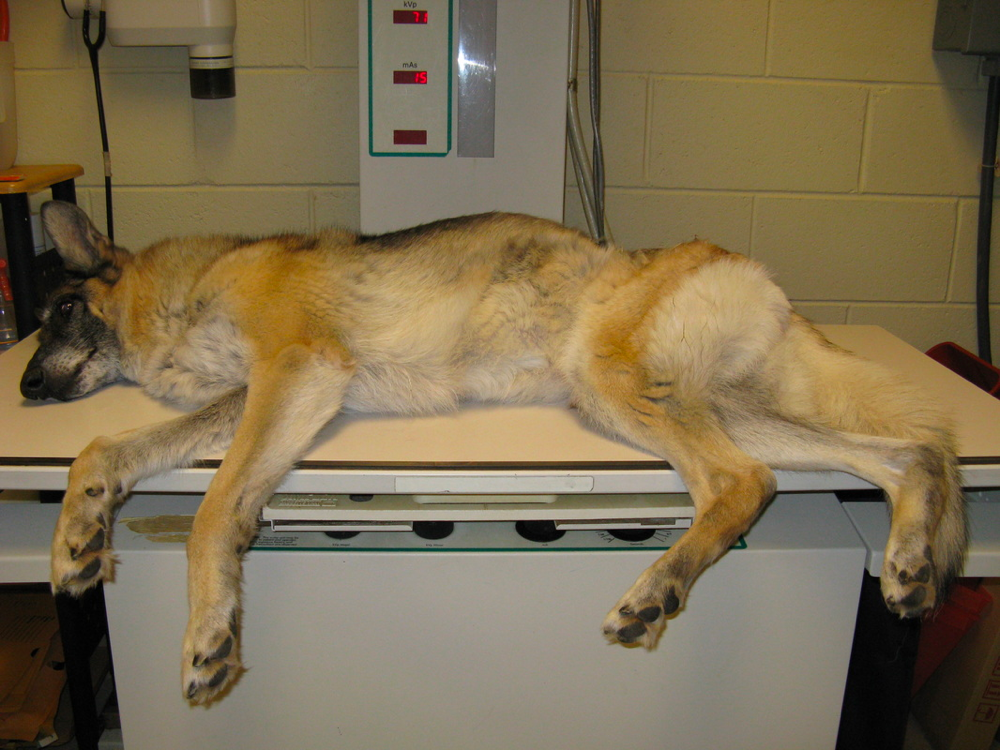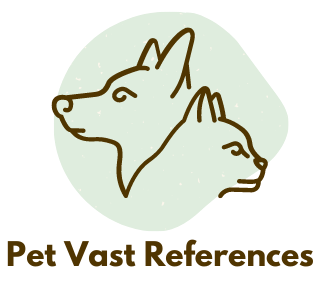Contents
Gastric Dilatation Volvulus (GDV), commonly called Bloat or Gastric Torsion is a killer threat in dogs. It should not be considered as a disease, but a condition or state that can happen to any cattle, dog like German Shepherds, Great Danes, Labradors, etc., and surprisingly even in some families of fishes, for instance, Cichlidae. Especially in deep-chested dog breeds are usually more prone to this condition in certain situations. The condition demands emergency care and in most cases, it hardly gives any time for treatment – but if treated within a couple of hours, the animal might be spared the fatal attack. Among killing canine diseases bloat happens to be in second place next to cancer. It is very much a time-sensitive disease with a flickering chance of survival.
Gastric torsion is also referred to as stomach bloat but there’s a difference even though they are linked up. The link is that – if the discomfort begins with bloat it gets followed by gastric torsion or a twisted stomach, which needs an instant surgical cure to avoid death. The difference is bloat usually leads to the adverse situation of torsion but a torsion can happen even without the occurrence of bloat. There are many other monikers for the fatal disease, namely Gastric Dilatation-Volvulus (GDV), stomach torsion, or twisted stomach.
What Happens in Gastric Torsion?

With the onset of torsion, there is an abnormal swelling in the dog’s stomach and it starts rotating within the abdominal cavity like a twisted balloon. The functionality ceases as the twisted organ seals up the escape routes of the gas from the stomach and cuts off the passage of air. Hence is the dilation, subsequent discomfort, and finally death.
In such an adverse situation the dog finds it difficult to eructate (burp) or defecate. The twisted stomach also blocks the normal blood flow within the organ – this condition takes a great toll through an increase in pressure level resulting in organ damage or shock.
A major problem lies with the spleen which suffers a violent movement as the stomach rotates; in the process blood vessels get torn and necrosis starts taking place resulting in peritonitis.
Dog Breeds Exposed to the Risk of Bloat
- Akita
- Bloodhound
- Boxer
- Doberman
- German Shepherd
- Golden Retriever
- Great Dane
- Great Pyrenees
- Irish Setter
- Irish Wolfhound
- Labrador Retriever
- Newfoundland
- Old English Sheepdog
- Rhodesian Ridgeback
- Rottweiler
- Saint Bernards
- Standard Poodle
Symptoms of Bloat in GSD
- Anxiety
- Abdominal swelling after Frequent Gagging
- Whining
- Hypersalivation or drooling
- Dry vomiting
- Abnormal panting
- Fast, shallow breathing
- Excessive restlessness
- Fast heart rate
- Very weak pulse
- Gums may be blue, dark red, or whitish
What Causes Gastric Torsion?
There are many causes for torsion. However, food habits, exercise patterns, mental and physical stress, genetics, and disposition are the major causes of gastric torsion or bloat in German Shepherd Dogs or in any other large, deep-chested breed. Any kind of stress might precipitate the problem like a lifestyle change, household shifting, or mating. Torsion can happen if the dog gulps down a mouthful of food out of excitement and drinks water in abundance, immediately. Dry food intake can also be the cause; if it happens to be preserved with citric acid it should never be pre-moistened. It is better to avoid carbohydrate-rich food and calcium supplements, the latter, especially in the case of puppies. The abundance of gastrin enhances the chance of bloating and it has been found that calcium stimulates the hormonal production of gastrin. The insufficient pancreatic enzyme can produce more gas within the abdominal system. Commercial food, rich in stool-hardening ingredients, can enhance the risk of bloating. Moreover, dogs who have irregular bowel patterns can suffer from this problem. Temperamental changes (like nervousness, anxiety, and fearfulness) can initiate the risk of bloating. Heredity, though not a major cause, can be one of the many causes of the disease.
Serious Symptoms of Bloat in German Shepherds
Gastric Torsion or Bloat in GSD leads to distention of the abdomen and the dog exhibits retching in an effort to belch out the air gathered within the abdominal area. The abdomen, in such a scenario, feels hard to touch. The animal makes a desperate attempt to vomit but fails. You can also notice another significant change in the coloration of the gums. The dark red gums take on a whitish or bluish appearance. The animal starts licking the air. The heartbeat gets accelerated along with the weakening of the pulse rate – which actually leads to the collapse of the dog if it is left surgically untreated within the minimum possible time.
Torsion- A Medical Urgency
The seriousness of the disease deserves immediate medical attention. But there is no guarantee that the dog will survive. In one-third of cases, the disease turns fatal. The only thing that matters is how swift the treatment is. A GDV-affected dog should be brought to the hospital immediately for:
- Stabilization of heartbeat
- Stomach depression
- Administration of IV fluid
As soon as Torsion is diagnosed intravenous catheters should be inserted – a large needle is used for the purpose to release the trapped air.
If surgery is considered, doctors do away with the damaged portions of the stomach and the spleen. The aim is to remove all those cells which have suffered necrosis (premature death of healthy, living cells). They also reposition the stomach through a process called a gastropexy. Post-surgery recovery comes through antibiotics and other necessary medication. Pyloroplasty also helps in keeping torsion at bay because it allows easy passage of food from the stomach to the intestine.
Which Breed is at Greater Risk?
Large-sized dogs, especially those who are deep-chested, have a greater predisposition toward this disease. German Shepherd dogs fall under this category.
Precautions and Preventions
Small meals, which are nutritious and balanced, should be fed to the dog. Natural probiotic yogurt, a teaspoon of nutmeg, fennel, and chamomile tea are some of the foods which are good for digestion and prevent the accumulation of gas within the abdomen. Never allow the animal to drink water within thirty minutes of food consumption. Most importantly, exercising at least two hours immediately after and before heavy meals is a big NO-NO. Avoiding stressful lifestyles, unplanned feeding habits, and obesity are of utmost importance to prevent bloat.

 Addison’s Disease in German Shepherds: Symptoms and Treatment
Addison’s Disease in German Shepherds: Symptoms and Treatment